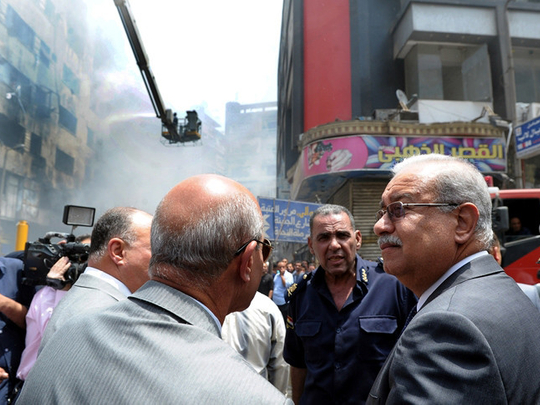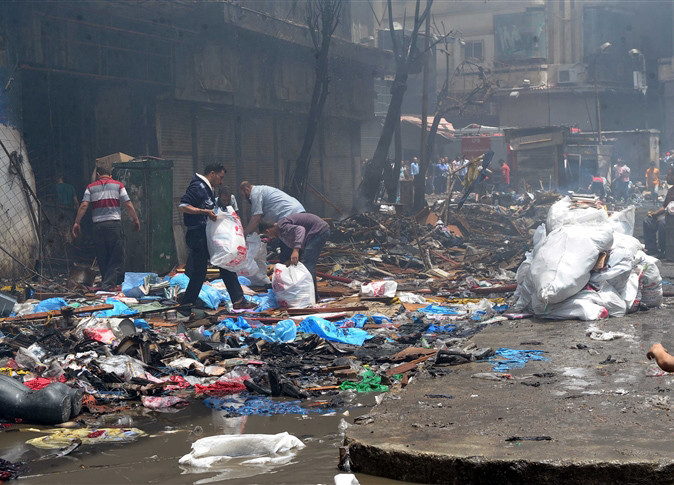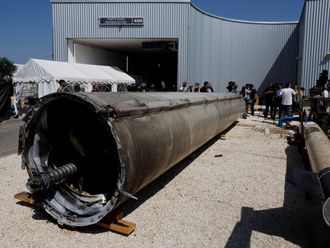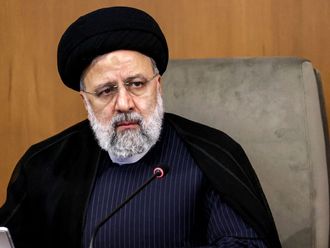
Cairo: Mohammad Yousuf was at his home almost at midnight when he got the news that his garments shop was among dozens that caught fire in the busy commercial area of Ataba in central Cairo.
“I and other members of my family rushed to the area which is not far from my house,” the 53-year-old trader says.
“The scene was like hell. Fire was everywhere. It was something unusual. Buildings caught fire for no understandable reason. Hardly had the firemen extinguished one fire, when another broke out. The situation continued like this for many hours. The fire ate up everything in its way. It must have been a deliberate work of sabotage,” Yousuf told Gulf News.
Around 200 stores, 70 warehouses and 40 apartments were gutted by the blaze that erupted on May 8, causing multi-million-dollar losses. Three people were killed and 91 injured in the disaster.
More than a week later, the smell of the fire still fills the air. Facades of stores and buildings in the narrow alleys of the ill-fated area appear scorched.
“By the time I arrived, most parts of the place were on fire,” recalls Nassar Hamada, the owner of another garments shop in Ataba. “The fire occurred during the weekly business holiday in the area. But I heard from some people who happened to be still awake that strange persons threw white powder in several places in the area and fled. Minutes later, the fire started and spread uncontrollably.”
Two days after the Ataba blaze, another one ripped through a textile marketplace in the Islamic Cairo district of Al Ghuria. Also, some keepers of the devastated stores alleged it was an arson.
Causes of both fires — the biggest in the Egyptian capital in years — have not been officially determined yet.
The blazes in Ataba and Al Ghuria were among dozens of fires that have hit different places across Egypt in the past few weeks. Around 60 blazes were reported in the country on three consecutive days.
Some government loyalists have accused the banned Muslim Brotherhood of being behind the conflagrations.
Business tycoon Najeeb Sawiris pointed the finger at the Islamist group, which the government has repeatedly blamed for a spate of deadly attacks in the country since the army’s 2013 overthrow of president Mohammad Mursi, a senior Brotherhood official.
“I don’t have proof that the terrorist Brotherhood ignited these fires. But the Brotherhood was the one that set 64 churches on fire within 48 hours after the June 30 revolution,” Sawiris said, referring to the date when mass protests started in 2013 against Mursi’s rule, culminating in his overthrow.
“We have to ask ourselves: who benefits from the situation? The Brotherhood followers have been shown gloating over these fires,” Sawiris told private Dream TV.
MP Fouad Badrawi also believes that the recent fires were caused by arsonists, but he stops short of naming the Brotherhood.
“There are invisible hands behind these incidents with the aim of destabilising the country and hampering economic development,” said Badrawi in media remarks.
Some emergency services experts see the situation differently.
“The increase in the fires in the recent period was due to failure of many commercial and industrial establishments to comply with safety standards,” says Fadi Hassan, an ex-official at the firefighting department.
“The recent fires occurred in places noted for their illegal electric connections and storing inflammable substances,” Hassan told Gulf News. “Their happening at the same time is an alarming coincidence that must draw attention to the necessity of checking compliance with safety rules.”












